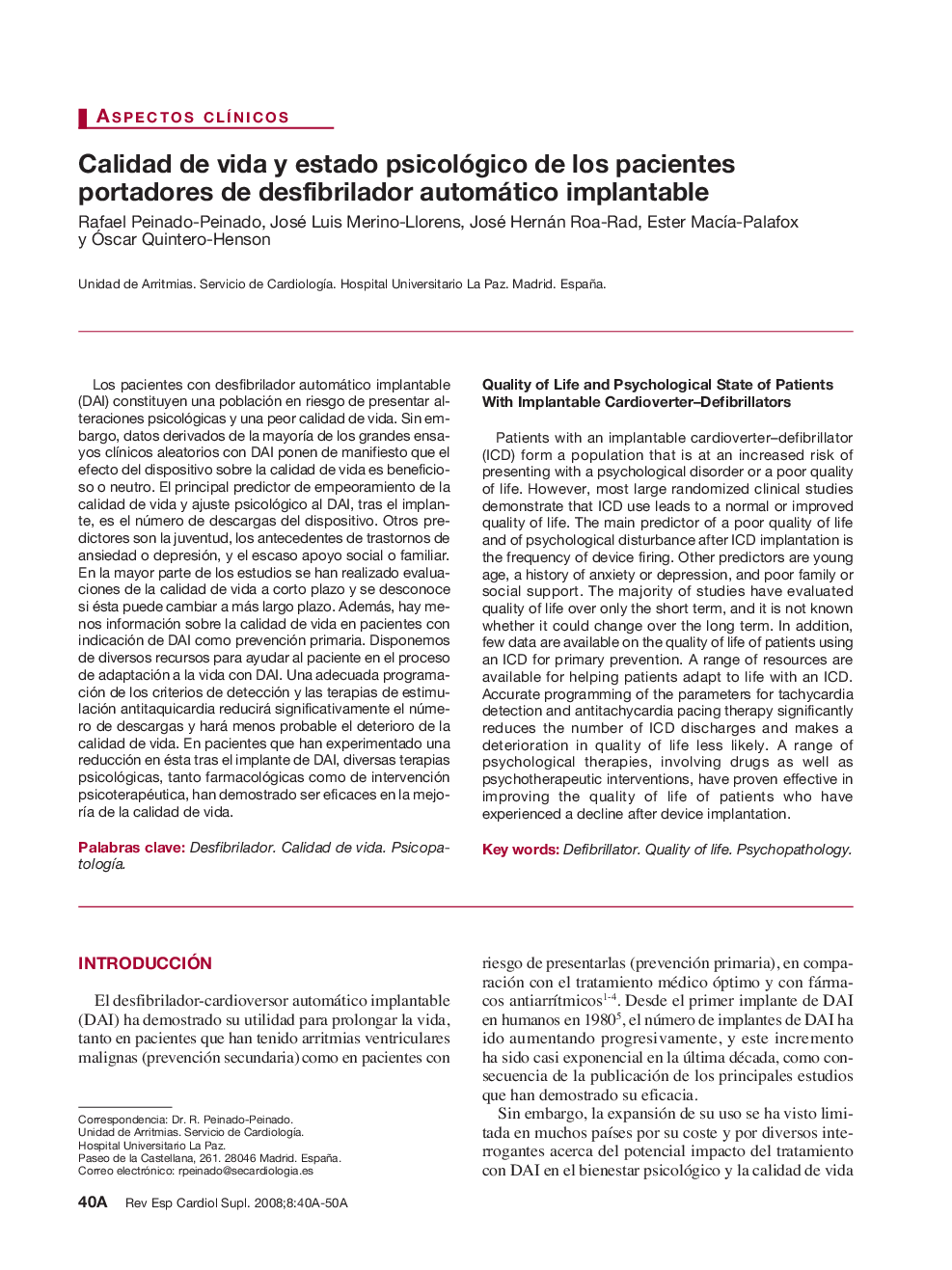| Article ID | Journal | Published Year | Pages | File Type |
|---|---|---|---|---|
| 3019773 | Revista Española de Cardiología Suplementos | 2008 | 11 Pages |
Abstract
Patients with an implantable cardioverter-defibrillator (ICD) form a population that is at an increased risk of presenting with a psychological disorder or a poor quality of life. However, most large randomized clinical studies demonstrate that ICD use leads to a normal or improved quality of life. The main predictor of a poor quality of life and of psychological disturbance after ICD implantation is the frequency of device firing. Other predictors are young age, a history of anxiety or depression, and poor family or social support. The majority of studies have evaluated quality of life over only the short term, and it is not known whether it could change over the long term. In addition, few data are available on the quality of life of patients using an ICD for primary prevention. A range of resources are available for helping patients adapt to life with an ICD. Accurate programming of the parameters for tachycardia detection and antitachycardia pacing therapy significantly reduces the number of ICD discharges and makes a deterioration in quality of life less likely. A range of psychological therapies, involving drugs as well as psychotherapeutic interventions, have proven effective in improving the quality of life of patients who have experienced a decline after device implantation.
Related Topics
Health Sciences
Medicine and Dentistry
Cardiology and Cardiovascular Medicine
Authors
Rafael Peinado-Peinado, José Luis Merino-Llorens, José Hernán Roa-Rad, Ester MacÃa-Palafox, Ãscar Quintero-Henson,
